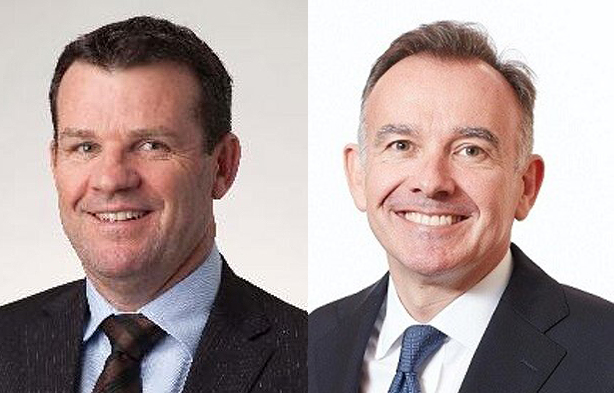Big fiduciary roles in transition: IFM and Sunsuper
Brett Himbury is retiring as chief executive of IFM Investors and Bernard Reilly is making a comeback as the next chief executive of Sunsuper. The two moves juxtapose neatly. They also indicate the human strains of running big financial organisations.
In the profit-for-member sector you don’t get paid several million dollars a year to run a fiduciary fund. You get paid well, compared with other industries, but not like you’d get in the banking sector. But the toll on your personal and/or family life is as great.
Himbury announced his move to semi-retirement last week, after 10 years running IFM, and Reilly announced his return to the coal face, as chief executive of Sunsuper, after five years of part-time directorships, including as a member of the investment committee of the $100 billion NSW T-Corp fund. Scott Hartley, the current Sunsuper chief executive, announced in August that he would step down and look for a new big challenge. It would probably be his last, he said at the time.
Age has a bit to do with these transitions. Himbury will be 57 by the time he leaves IFM, which he has committed to until just before Christmas. The industry fund-owned funds management firm will take its time following due process in the search for a replacement.
Reilly, a couple of years younger, has had the benefit of five years in a less stressful environment. It may not have been exactly R&R for him, but he hasn’t had to iron a shirt and get into the city by 8am each day for a while. Reilly said last week that he was unable to speak publicly about his new role until after he joined Sunsuper, which has $69 billion under management, in October. He headed overseas for a short family holiday on Saturday.
Himbury, who has overseen a significant growth spurt at IFM, which has $148 billion under management, and global expansion during his tenure, said that almost every week for the past 10 years he had caught the QF401 flight from Sydney to Melbourne on a Monday morning. For the uninitiated, that’s the 6 a.m. flight – not one you’d normally want to get. In more recent years he also caught a lot more overseas flights, as IFM spread its wings in Europe and North America.
A defining moment, he says, was when he arrived home in Sydney from Melbourne head office a while back to an empty house. “My family was away skiing and I was not able to be there. I had passed the 10-year mark at IFM and it made me think… The biggest thing for me in this decision is the time I have spent away from my family. By my calculation, I spent 110 nights away in the past 12 months. But I’m actually not complaining about it. I met some great people and visited lots of interesting places… This has been a tremendous job. It’s been both fascinating and challenging. I’m very proud of what the team has achieved… I have now been a CEO for 15 years [previously the boss of Tyndall, which was later acquired by Nikko].”
The skiing anecdote is no accident. Brett’s daughter is an Australian Olympic skier and Brett is a very good skier himself, sometimes acting as an official in Australian competitions. The biggest problematic issue in his life became the time he had to spend away from his family.
“I started to think: am I going to be able to do this for another five-or-so years, for the benefit of the shareholders? I definitely want to continue to work though. I want to participate, maybe on a handful of boards. I want to continue to make a contribution to the industry I love.”
Reaction to his news has been interesting, as you’d expect. His diary was filling up fast late last week, with organisations wanting to sound him out for possible non-executive roles.
Meanwhile, Bernard Reilly’s career has been similar but different. He was very successful at State Street Global Advisors (SSgA), where he was the second or third employee in Australia, in the early 1990s, straight from Macquarie University. He worked at SSgA for more than 24 years in a range of increasingly senior roles including head of Australia, then head of Asia Pacific and finally head of a strategic global position. It was the last role, involving a lot of travel to Boston head office, which proved the most difficult. He struggled with isolation from his family and resigned from the firm in 2014.
Both Reilly and whoever takes over at IFM are inheriting firms which are in very good condition. Under Himbury, IFM has become a truly global firm, also diversified in the asset classes in which it operates. IFM is more than an infrastructure manager. A little-known fact is that it is the third-largest manager of Australian listed equities too. Sunsuper, similarly, has expanded to become a national multi-industry fund, which also has, as a point of differentiation, a best-of-class in-house administration system.
– G.B.










